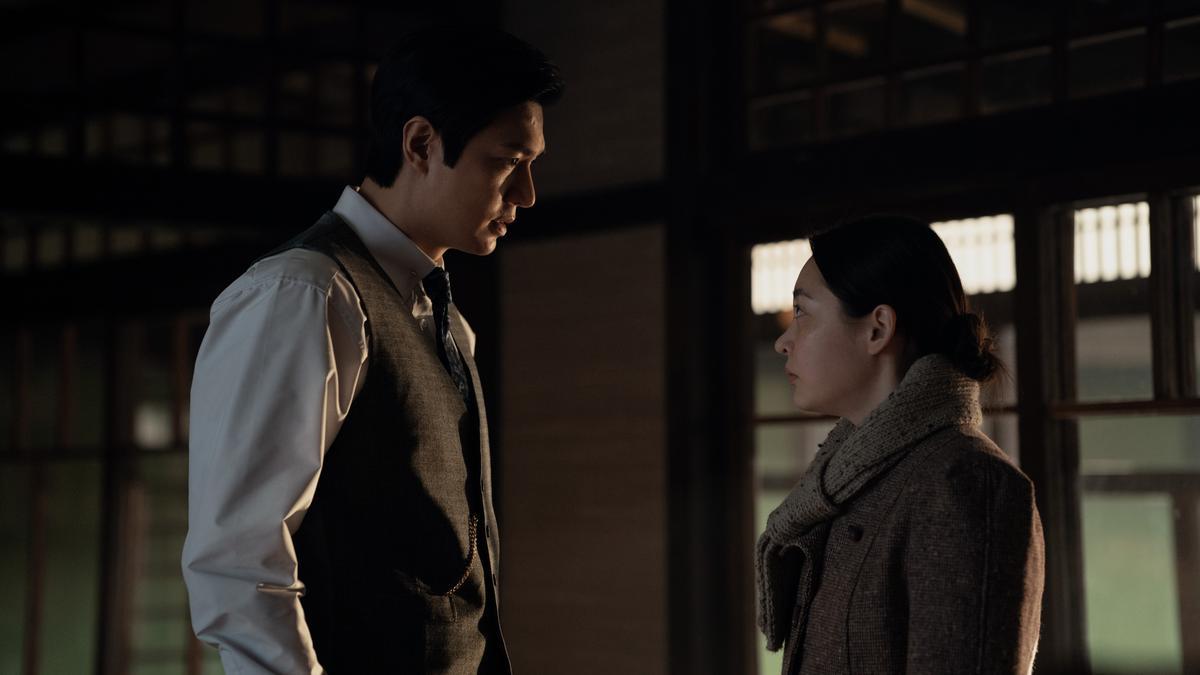
Early on, in the first episode of the much-anticipated second season of Pachinko, American fighter planes drop pamphlets urging residents to petition their emperor to “halt this brutal war.” The year is 1945, and in the bustling streets of Osaka, the reminders of the Second World War and the threat of imminent bombings are everywhere. For Sunja and her small family, this period of uncertainty and disquiet looms large over their lives.
The inaugural season of Pachinko premiered in 2022, based on Min Jin Lee’s best-selling novel of the same name. The show, which skillfully diverges from the book’s linear narrative, switches between the 1940s, following Sunja’s life in Korea and Japan during World War II, and 1989, where we follow her grandson, Solomon Baek, who returns to Japan from New York for a business assignment.
In the first season, viewers witnessed Sunja grappling with an unexpected pregnancy and adapting to life in Osaka after leaving Japanese-occupied Korea with her husband, Baek Isak (played by Steve Sanghyun Noh). Season two picks up with Sunja facing even more significant challenges. Years have passed since Isak’s imprisonment for helping laborers fight for fair wages. Now, Sunja’s brother-in-law Yoseb (Han Joon-woo) works in a factory in Nagasaki, while she and her sister-in-law Kyunghee (Jung Eun-chae) worry about their children having to eat worm-infested rations. Demonstrating steely determination, Sunja declares, “I am good at selling,” and sets out to risk her life selling rice wine on the illegal black market.
Yoon Yuh-jung portrays the older Sunja in the 1980s. This time period is juxtaposed with 1989, where Solomon’s father, Mozasu (Soji Arai), prepares to open a lavish new Pachinko Parlour. Solomon, on the other hand, aims to gather investors for his new project. He has moved on from his previous firm after being moved by the story of a senior Korean immigrant who refused to sell her land at the end of the previous season.
A narrative as sweeping and expansive as Pachinko deserves a measured and deliberate on-screen unfolding—a feat beautifully executed in the first season. At a time when many shows face the threat of not being renewed for subsequent seasons, Pachinko approaches its unfolding story with a sense of unhurried elegance. The first episode of season two is both unhurried and engaging, establishing how life has changed for the central characters following a time leap.
.
Within Sunja, the audience perceives a blend of helplessness and determination to provide for her sons, brought vividly to life by the talented Minha Kim. Her sons, Noa and Mozasu, played by Kim Kang-hoon and Eunseong Kwon respectively, are welcome additions to the cast. Mozasu is spirited and eager to “defeat the enemies,” a sentiment showcased during a government-mandated drill. In contrast, Noa is subdued and burdened by the discrimination faced by zainichis (Koreans in Japan). As Noa contends with his classmates’ taunts about his identity, Solomon, in 1989, feels unsettled hearing a Japanese bakery owner’s racially charged outburst against his grandmother, Sunja (Yoon Yuh-Jung). “I’m from Yale University,” he asserts, underscoring how much and how little has changed across generations. Jin Ha, as Solomon, portrays a character perpetually on edge—a ticking time bomb desperate for a fresh start and professional success. It remains intriguing to see what lies ahead for him this season, given that his storyline now diverges from the book.
In season one, the character of Koh Hansu, a fish broker and merchant with powerful connections, was richly developed. Hansu’s relationship with Sunja sets many events in motion, and Lee Min-ho, in a career-defining role, portrays him with compelling depth. The episode dedicated to Hansu, directed by Kogonada and set against the backdrop of the 1923 Great Kanto Earthquake, remains memorable. Hansu continues to be a formidable presence, watching over Sunja and her sons.
Showrunner Soo Hugh has often highlighted the universality of Pachinko’s themes—love, loss, grief, and survival across generations. One of the show’s significant strengths is its ability to avoid becoming overly melodramatic, keeping theatrics minimal. Although the scale of the story is grand and the narrative canvas expansive, Pachinko’s sombre and haunting storytelling continues to impress. The first episode of the second season maintains this high standard, and viewers can look forward to more compelling episodes in the weeks to come.
The second season of Pachinko is currently streaming on Apple TV+, with new episodes releasing every Friday.












